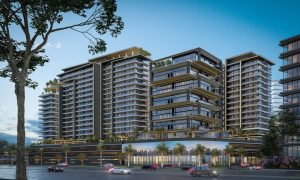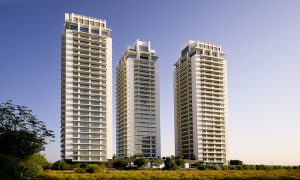Bayut.com: Downshift in rental growth in Dubai
After an upward rally earlier in 2015, rental values in Dubai took a marginal dip in December as the year drew to a close. Although the sale market took a hit in 2015 following news of 25,000 units coming into the market, less than 8,000 were actually delivered in Dubai. And at a mere 1%, rental growth in Abu Dhabi remained slow as well, although a constrained supply of units and a rise in working population pushed prices up in individual categories.
Dubai
As expected, the new residential units delivered in 2015 did manage to lower rents in select categories in Dubai, particularly during December. The slight drop in rents was also a result of a reduced demand that usually precedes year-ends in most markets. Many buying/renting decisions are usually deferred until the beginning of the New Year, and that is what we think contributed to the drop in demand, and subsequently, rents.
Still, Bayut’s December 2015-December 2014 study revealed average apartment rents in Dubai going up 2.14% at the end of 2015, although they dropped 1.3% on a month-on-month (Nov-Dec) basis.
Month-on-month, average rents in December were down 4% in the studio category, but one-bed rents held their ground. Apartments of two, three and four-plus bedrooms saw a respective 5%, 1% and 4% fall in rents compared with November 2015.
At the end of December 2015, studio apartments commanded AED 61,000 on average, while rents for one-bed apartments were close to AED 102,000. Two-bed apartments fetched average rents of AED 153,000, three-bedroom apartments AED 211,000, and four-plus bed apartments commanded an average rent of AED 328,000.
In terms of yields, apartments in Dubai offered an average return of 5%. Category-wise, studio apartments yielded 7%, one-bed apartments clocked in at 6%, while two-bed apartments yielded 5%. Three and four-plus bed apartments offered yields of 5% and 3%, respectively.
Abu Dhabi
Although Dubai experienced some rental drops, Abu Dhabi rents posted a 1% rise in December 2015 compared with November.
But the rising rental values in the UAE capital are becoming a growing concern with the absence of a rental cap or index, as well as a constrained supply pipeline providing a consistent upward pressure on values. It was anticipated that Abu Dhabi would launch an index to set guidelines for landlords with regard to rental hikes, as is in place in Dubai, by the year-end. But nothing formal has come to the forefront so far.
Abu Dhabi’s studio apartment rents, which went up by a sizable 4% in November 2015, posted a 5% drop in values in December.
Month-on-month, rents for one-bed apartments remained stable in December, but those for two-bedroom apartments went up by 6%. Average rents for three-bed apartments decreased a marginal 1%, but the real gainer was in the four-plus category, with a massive 15% rise in rental values on average.
Studio apartment rents averaged AED 64,000 in December, one-bed apartment rents were AED 101,000, while two-bed apartments were being let for an average of AED 142,000. Three and four-plus bed apartments were being rented out for AED 189,000 and AED 299,000 respectively during the same time period.
At 7%, rental yields for apartments in Abu Dhabi provided ample motivation for buyers. Category-wise, studio rents yielded the highest return at 9%, one-bed apartments offered yields of 8%, and two-bed units offered a 7% yield. Rental yields for three and four-plus bed apartments were 7% and 6%, respectively.
Our take
Braving a rather tough year for global economies affected by liquidity and oil price crunches, we believe Dubai has done well on the back of its economic diversification drive. Its growing financial, tourism and hospitality, and real estate sectors have helped the emirate absorb global economic shocks like the one currently in play.
As a result, continuous creation of employment opportunities is directly benefiting the realty sector, evident in the continuous demand for both commercial and residential rental spaces. Bayut.com reckons the demand for rental spaces will persevere this year as well, helping values stay stable. The sale market is also likely to see an upturn in activity in the latter half of the year once development of infrastructure related to Expo 2020 gains momentum.
On the other hand, demand in Abu Dhabi’s realty market will stay strong, but calls for more affordable housing and a generally greater supply of units are becoming louder in the face of fears of reduced spending by the government. Progress in the capital’s industrial, financial and logistics sectors is driving demand for housing and a restricted supply will only boost the already climbing rents.
The road ahead for maturing real estate markets in both emirates is set to get better and both are more than capable of navigating the few potholes that might occur along the way.
Kainat Malik is Online Marketing Associate at Bayut.com























